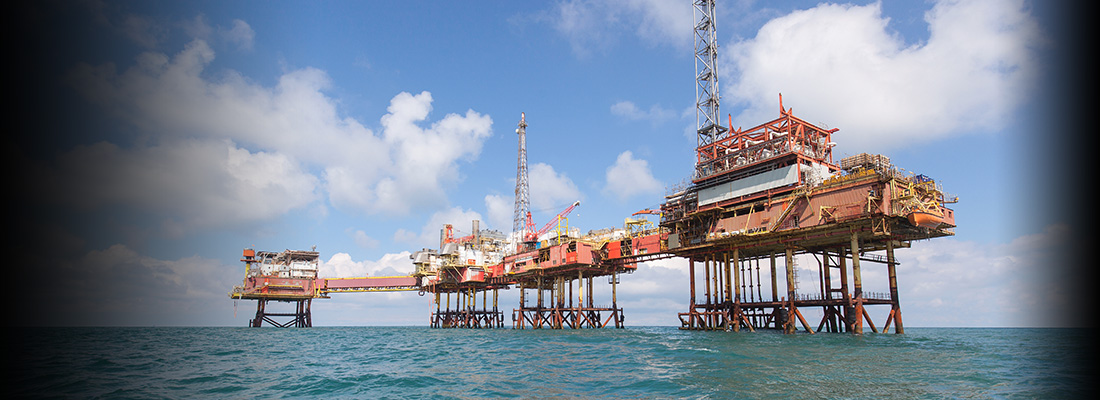

| PREVIOUS | HOME | NEXT |
Court orders ‘mega-case' surety By Kate Tilley and John Reynolds, KT Journalism Petroleum producer Woodside Energy Julimar Pty Ltd has been awarded a $500,000 surety from an offshore driller suing it for breach of contract. WA Supreme Court Justice Kenneth Martin awarded the surety over Singapore-based Armada Balnaves Pte Ltd's (AB) objections and assurances any adverse damages would be paid by AB or its Malaysian parent company. The surety request was part of a legal action over AB's contract to provide oil and gas drilling services to Woodside off the WA coast being terminated. AB is suing Woodside for $US7.7 million in liquidated damages that it argues fell due after the contract was ended. Woodside sought an interim surety order of $500,000 to be reassessed when the case's complexity was better known. AB objected, saying its drilling ship, Armada Claire, was valued at $US100 million, unencumbered and could be used to finance any adverse finding. AB's parent was worth $US1.7 billion and had issued a guarantee to cover any shortfall, if required. If that failed, Woodside could seek a Singaporean court order to enforce an Australian judgement, AB said. On 2 November, Justice Martin rejected all AB's arguments. He said while the initial claim was for $US7.7 million, AB had said it would seek additional damages for long-term losses that could bring the final payout to more than $US275 million, well above the ship's value. Justice Martin said the action was a "mega-case" between "well-resourced corporate giants". He said it would be "extremely complex" and involve highly technical and scientific disputes. Woodside would have considerable costs in preparing its defence. While the parties' pleadings looked reasonably straightforward – a justifiable contractual termination for alleged serious failure to perform, countered by assertions of an alleged repudiatory breach and consequent claims of accrued contractual entitlements pre-termination and a significant level of loss-of-bargain damages – there was "considerable scope for technical and factual disputation at any trial", Justice Martin said. AB did not argue the surety was beyond its financial resources. On the contrary, it argued its financial soundness and good reputation meant a surety was unnecessary. Justice Martin said AB's guarantees were "ad hoc" and unsupported. He could not overlook the fact AB's only asset was a ship valued below the potential final payout and moored outside Australian waters, off Indonesia. While the ship was unencumbered, "that may not always be so for the future". "A ship is a highly mobile asset [and] can incur liabilities [through] unforeseen exposures arising out of maritime scenarios. Moreover, one-ship corporations or their assets are readily capable of being disposed of." AB had no other assets within Australia or in Singapore. The other key negative factor AB raised to resist giving security for costs was a guarantee from its Malaysian parent corporation, Bumi Armada Berhad, which was listed on the Malaysian stock exchange. But Justice Martin said the guarantee's responsiveness in hypothetical circumstances of an adverse costs order was, prima facie, negative. A draft bill of costs prepared by Maria-Luisa Coulson showed an ultimate projection of Woodside's trial costs and disbursements to the point of completing discovery of $577,256.93. Justice Martin rejected criticisms of Ms Coulson's projections, saying they were "petty and cavilling", particularly in the context of "a unique civil dispute and its sizable accompanying documentary discovery magnitude". Her estimate was "not at all unreasonable". Given the massive financial amounts of damages at issue, the criticisms were "nit-picking", rather than raising substantive concerns. Justice Martin rejected the potential for Woodside to seek enforcement in a Singapore court. He was concerned about Woodside being subjected to years of "hostile overseas enforcement action" if AB did not meet its obligations. "They are not just hypothetical concerns," Justice Martin said. "No prudent commercial party would ignore such risks possibly jeopardising its long-term cost recovery after a trial." He rejected AB's argument a large surety would set a dangerous precedent. "This case falls into the genre of mega-litigation, needing to be assessed by the high financial stakes at issue and underlying technical complexities," Justice Martin said. "It does not set a future precedent for security in more typical day-to-day commercial litigation of a lesser magnitude." Armada Balnaves Pte Ltd v Woodside Energy Julimar Pty Ltd [2016], WASC 353, 02/11/2016 |
Resolve is the official publication of the Australian Insurance Law Association and
the New Zealand Insurance Law Association.

